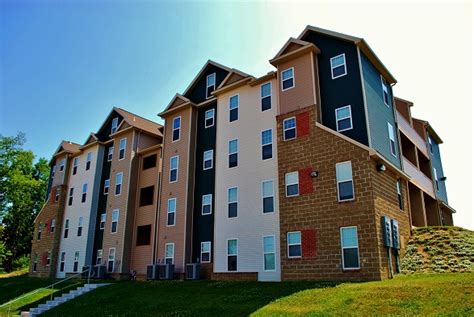Navigating the Off-Campus Housing Landscape at WVU

As a college student at West Virginia University, finding suitable off-campus housing can be both an exciting and daunting task. With a myriad of options available, it’s crucial to approach this endeavor strategically to secure the perfect living space. This comprehensive guide will provide essential information to help you make informed decisions and navigate the off-campus housing landscape at WVU.
Understanding Your Needs and Budget
Before embarking on your search, take time to assess your individual needs and establish a realistic budget. Consider the following factors:
- Desired neighborhood: Determine which areas near campus align with your preferences for proximity to classes, nightlife, or amenities.
- Number of residents: Decide how many roommates you’re comfortable living with and explore options that accommodate your group size.
- Essential amenities: Identify must-have features such as air conditioning, laundry facilities, and parking.
- Rent and fees: Set a budget that includes not only rent but also potential utilities, parking costs, and security deposits.
Exploring Your Options: Apartments, Townhouses, and Houses
WVU offers a diverse range of off-campus housing options, each with its unique advantages and drawbacks:
-
Apartments: Apartments provide a comfortable and convenient living experience, often featuring amenities like shared common areas, fitness centers, and assigned parking.
-
Townhouses: Townhouses offer more privacy and space than apartments, with individual entrances and sometimes small yards.
-
Houses: Houses provide the most privacy and space, but they also come with higher maintenance costs and responsibilities.
Finding and Securing Housing
-
Start your search early: Begin looking for housing several months before your desired move-in date, especially if you have specific preferences.
-
Utilize online rental platforms: Websites like Zillow, Trulia, and Apartments.com offer a wide selection of available properties.
-
Attend rental fairs: WVU hosts rental fairs where students can connect with local landlords and explore various housing options.
-
Contact local real estate agents: Real estate agents can assist you in finding and securing a suitable property, but their services may come with additional fees.
Tips for Successful Off-Campus Living
- Read and understand your lease agreement carefully.
- Establish a clear communication plan with your roommates, including responsibilities and rent payments.
- Budget for unexpected expenses such as repairs or utility bills.
- Be respectful of your neighbors and community.
- Take advantage of WVU’s off-campus housing services, including the Student Legal Services Office for any legal matters.
Resources for WVU Students
- WVU Off-Campus Housing Office: Provides information, resources, and support to students seeking off-campus housing.
- WVU Police: Ensures safety and security for off-campus residents.
- WVU Student Legal Services: Offers free legal advice and representation to students.
Tables
Table 1: Off-Campus Housing Costs by Type
| Housing Type | Median Rent |
|---|---|
| Apartment (1 bedroom) | $750 |
| Apartment (2 bedrooms) | $900 |
| Townhouse | $1,200 |
| House | $1,500 |
Table 2: Number of Off-Campus Students by Neighborhood
| Neighborhood | Number of Students |
|---|---|
| Suncrest | 1,500 |
| Evansdale | 1,200 |
| South Park | 1,000 |
| Greenmont | 850 |
Table 3: Essential Amenities in Off-Campus Housing
| Amenity | Percentage of Properties with Amenity |
|---|---|
| Air conditioning | 90% |
| Laundry facilities | 85% |
| Parking | 75% |
| Fitness center | 60% |
Table 4: Common Pain Points in Off-Campus Housing
| Pain Point | Percentage of Students Experiencing Issue |
|---|---|
| High rent costs | 70% |
| Roommate conflicts | 50% |
| Maintenance issues | 40% |
| Noise and disturbances | 30% |
